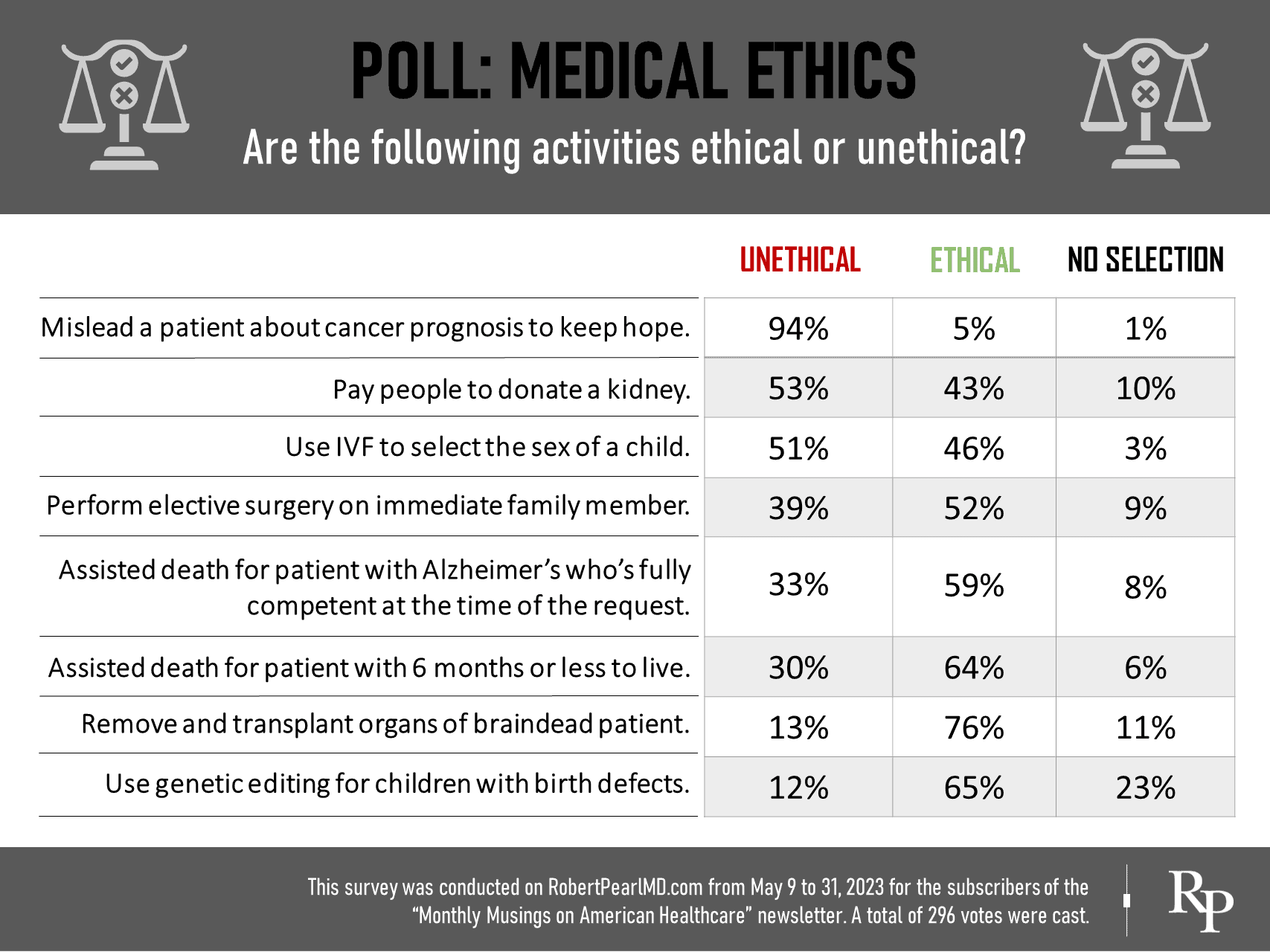My thoughts: Musings readers felt the most unethical action—by far—was misleading patients about their cancer prognosis. Much has been written about the harm of providing false hope. And yet, one study found that only 5% of cancer patients with less than six months to live had an accurate understanding of their illness. In others, 69% of patients with metastatic lung cancer and 81% of people with advanced colorectal cancer thought they could still be cured. Whether this is the result of the doctor’s words or the patient’s manufacturing their own hope, we don’t know.
Other behaviors deemed unethical by the majority of readers included paying kidney donors and using IVF to select the sex of a child.
On one hand, the fear that paying for organs will force individuals with financial challenges to donate to wealthy recipients is understandable. But how ethical is it to let patients needing a transplant die unnecessarily? And if money is the issue for transplants, why limit parents who are wanting to take the risk from deciding whether to have a boy or a girl? Without doubt, ethical issues are complex and often contradictory.
Sociologists recognize that ethics are tied to culture. And culture can change. It will be interesting to see how many of these actions—currently prohibited—will be standard practice in 20 years.
Thanks to all who voted! To participate in future surveys, and for access to timely news and opinion on American healthcare, sign up for my free (and ad-free) newsletter Monthly Musings on American Healthcare.
* * *
Dr. Robert Pearl is the former CEO of The Permanente Medical Group, the nation’s largest physician group. He’s a Forbes contributor, bestselling author, Stanford University professor, and host of two healthcare podcasts. Pearl’s newest book, “Uncaring: How the Culture of Medicine Kills Doctors & Patients,” is available now. All profits from the book go to Doctors Without Borders.







